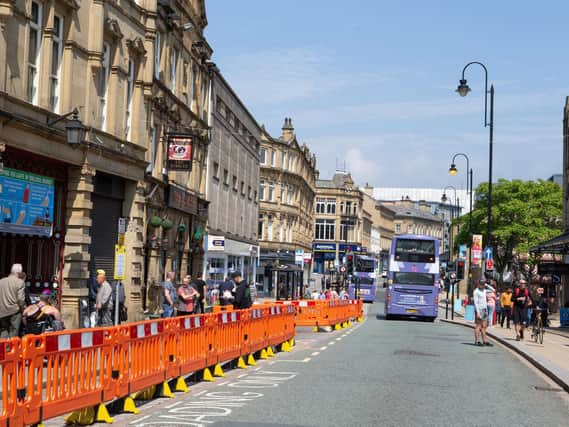Visible decline in Halifax leaves them vulnerable to division, HOPE Not Hate report finds


Coastal and post-industrial towns where many people feel there has been a departure in the "traditional way of life" are particularly vulnerable to feeling alienated from modern politics and becoming radicalised by the far-right.
The report from think tank HOPE Not Hate said immigration and multiculturalism has become a flashpoint for grievances caused by deeper feelings of alienation and a decline in local economies.
Advertisement
Hide AdAdvertisement
Hide AdIt said this was true across England and Wales but Yorkshire was more prone to problems with racism and division than any other part of the country, apart from the West Midlands.
Within the region, the towns of Barnsley, Rotherham, Dewsbury and Halifax had the most factors which made them at risk, such as visible decline, migration in the community, and an aging and shrinking population.
The report said grooming gangs had stoked racial tensions in some areas, including Rotherham’s child sex abuse scandal.
While some communities had recovered from this, Rotherham “is still experiencing the political fallout from the scandal”.
Advertisement
Hide AdAdvertisement
Hide AdAnother area that stood out in the report was the east coast, including places like Scarborough and Bridlington, where English identity was very strong and where patriotism could easily be pushed over into nationalism.
Rosie Carter, senior policy officer at HOPE Not Hate and a co-author of the report, said: “Many of Yorkshire’s towns are confident and optimistic places, with rich histories and strong identities, and most people are welcoming and open.
“But our research shows how a decline of industry in many Yorkshire towns feeds a sense of loss that can sometimes spill over into resentments or hostility towards newcomers or minorities.
“Building cohesive communities in Yorkshire, the spotlight has often been on the region’s diverse cities – Bradford, Leeds and Sheffield.
Advertisement
Hide AdAdvertisement
Hide Ad“While cities need support, cohesion in towns is often only prioritised when something has gone wrong. Lots of hard work is already being done to bring communities together, but deeper structural change and national investment is also needed to boost the resilience of Yorkshire’s towns; this is what will help places to prevent, resolve or minimise frictions and ensure that the people living there can thrive together.”
Lucy Mort, research fellow, think tank IPPR said the report chimed with similar research carried out in Yorkshire over the past few years.
She added: “It points to the need for local leadership and partnership working to address issues on the ground, but also to the need for macro-level policies that address community tensions through greater economic and social security for all.”
The Government has been contacted for a response.